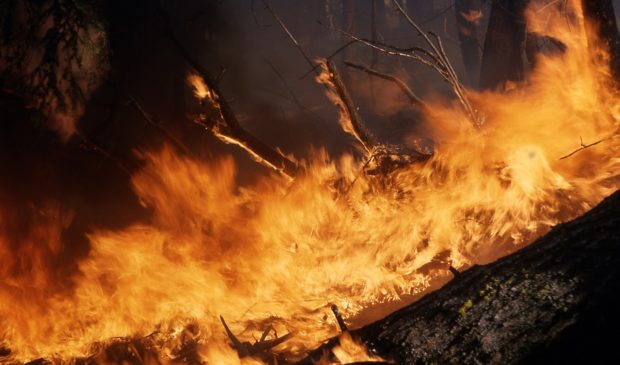Newsletter Signup
The Austin Monitor thanks its sponsors. Become one.
Most Popular Stories
- Austin opens new affordable housing development in Southeast Austin
- Ryan Alter and colleagues propose revision of boards and commissions
- ZAP Commission forwards recommendation allowing some commercial uses in residential zones
- Congress Avenue transformation plan gets support from Urban Transportation Commission
- This fall might’ve been Austin’s warmest. The city says it’s ready now for record cold.
-
Discover News By District

It’s been a bad year for Texas wildfires. It will probably get worse.
Tuesday, July 31, 2018 by Mose Buchele, KUT
Four large wildfires have broken out in Central Texas in about the last week. It’s part of a bad year for Texas fires, and climate researchers say the uptick in fires bears the fingerprints of global warming.
Statewide, it started early in the Panhandle – then the fires crept south and east into Central Texas.
“Resources are getting overwhelmed,” said Texas A&M Forest Services spokesperson Logan Scherschel. He said the state “has brought in resources from out of state to assist us with fighting these fires.”
So why is this year so bad in Texas? It’s not just drought. Extreme heat is also to blame, especially here in Central Texas.
“One of the big contributors to that has been these last two weeks of temperatures over 100 degrees,” said Geeta Persad, a climate scientist with the Union of Concerned Scientists. “It has allowed the fuel in that area to dry out really quickly.”
She says climate change is partly to blame for that heat, meaning heavy wildfire years like this may become more or less normal in the near future. Other researchers agree.
“I feel very confident in saying Texas is in the bull’s-eye of climate change,” said Donald Falk, a forest ecologist at the University of Arizona.
Falk recently worked on a paper showing the burn area of wildfires will double or even become eight times greater in parts of the Southwest over the next few decades. That has implications for all sorts of things, from where people live, to how we allocate firefighting resources when there are more fires to fight.
“That’s the big issue we’re running into right now,” said Scherschel.
“It’s getting hard to get extra resources from other states, because the states in the Pacific Northwest, California, and out west are taking up a lot of resources in that area, and they’re not available to come assist us,” he said.
Some policymakers advocate things like better forest management, increasing firefighting capabilities and creating housing policies to get people out of harm’s way.
But, Falk said, there’s only one big way to prevent forest fires.
“The lesson from our research is very very clear,” he said. “You cannot fix the fire problem without getting real and confronting climate change. Period. End of story.”
This story was produced as part of the Austin Monitor’s reporting partnership with KUT.
The Austin Monitor’s work is made possible by donations from the community. Though our reporting covers donors from time to time, we are careful to keep business and editorial efforts separate while maintaining transparency. A complete list of donors is available here, and our code of ethics is explained here.
You're a community leader
And we’re honored you look to us for serious, in-depth news. You know a strong community needs local and dedicated watchdog reporting. We’re here for you and that won’t change. Now will you take the powerful next step and support our nonprofit news organization?








